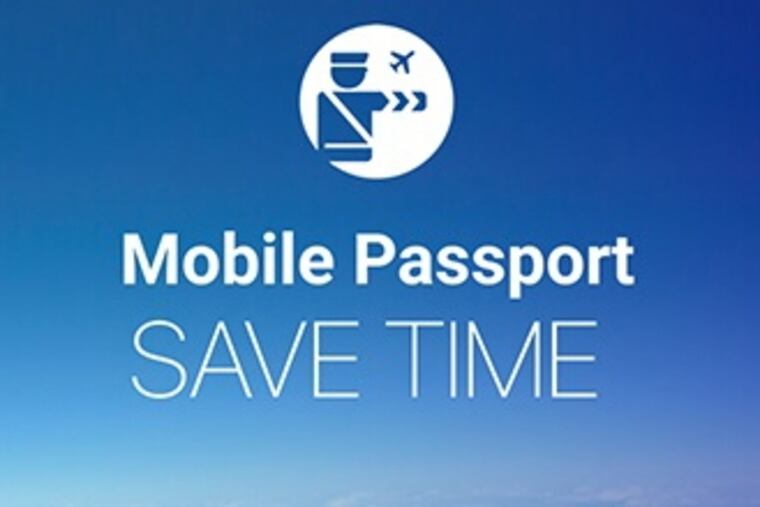Mobile Passport is the best-kept secret in air travel
All you have to do is input your passport information into your smartphone, take a selfie, and answer the same questions you’d encounter at the standard Customs kiosk.

After a long-haul flight home from abroad, it is soul-crushing to see a long, snaking line to get through customs when you land at an American airport. If you’re lucky, maybe it moves quickly. If you’re smart, you have Mobile Passport downloaded on your phone.
I should not be telling you about Mobile Passport. The app is a gift for frequent and infrequent fliers alike. Telling more people about it will mean more people using the line-cutting service. But I’m a fool and telling you anyway.
Although not new, Mobile Passport seems to be under the radar for many Americans traveling internationally. The service gives travelers access to a customs express lane at 26 U.S. airports (including Philadelphia, Newark-Liberty, and JFK) and three cruise ports in Florida, getting you through to baggage claim in minutes.
All you have to do is input your passport information, take a selfie, and answer the same questions you’d encounter at the standard Customs kiosk. The service is fast, free (unless you want a premium option) and exists thanks to a guy named Hans Miller.
Even if you’ve never met him, there’s a strong chance that Miller has changed your life — or at least the way you travel. After 9/11, Miller was asked to help build a new government agency called the Transportation Security Administration. About 12 years ago, Miller and his business partner Adam Tsao evolved airports again by implementing mobile boarding passes. And in 2009, Miller and Tsao brought yet another idea to the government: Mobile Passport Control (MPC).
With their company Airside Mobile, Miller and Tsao were on a mission to eliminate lines at the airport, whether you’re coming or going. Mobile boarding passes cut out the need to wait in line for the check-in counter or kiosk.
But what about the long lines people languished in at customs? Global Entry had tried to tackle the issue, but it wasn’t perfect.
"The problem with Global Entry was that you had to make an appointment, go through an interview," Miller says. "It was a lot of work to get accepted into the program. [U.S. Customs and Border Protection] had announced they were looking for new ideas."
For Miller and Tsao, it was an obvious opportunity. With blessings from CBP, the Airports Council International for North America and Boeing — and without government funding — Mobile Passport launched in Atlanta’s Hartsfield-Jackson airport in 2014.
Available on Apple and Android mobile devices, Mobile Passport was designed to be as user-friendly as possible. There are no interviews and no long forms to slow you down; you can complete the process in seconds.
What’s more comforting than the service being quick to download and easy to use is that unlike many other free apps, Mobile Passport doesn’t make money by selling user data.
"Never have, never will," Miller says. "In fact, we don’t even have the technical ability to see your data. All personal information is only stored on the phone. The only key to unlock that encryption is with the consumer. There’s no admin access."
Mobile Passport generates revenue through its premium service. For $15 a year, this version allows users to store their information for subsequent travel. One subscription covers the service for several family members.
If this all seems too good to be true, rest assured that it isn’t. There are no strings attached, and Mobile Passport has truly just begun to scratch the surface of travelers stuck in line at customs. Even though Mobile Passport has been used 12 million times since its creation, that number pales in comparison to how many people fly annually. In 2017 alone, 4.1 billion people flew, according to data from the International Air Transport Association.
Up next, Airside Mobile is finalizing a biometric product that will allow travelers to ditch boarding passes and IDs altogether. Unlike the facial recognition process at airports that’s currently facing backlash, Miller’s option is less intrusive.
"People are worried about privacy, and rightfully so," Miller says. "We are rolling out a product that allows the traveler to store their reference photo and grant access for a limited period of time at a specific location."
According to Miller, the result will be a seamless biometric experience without travelers having to worry about losing control over their data.